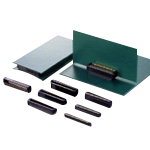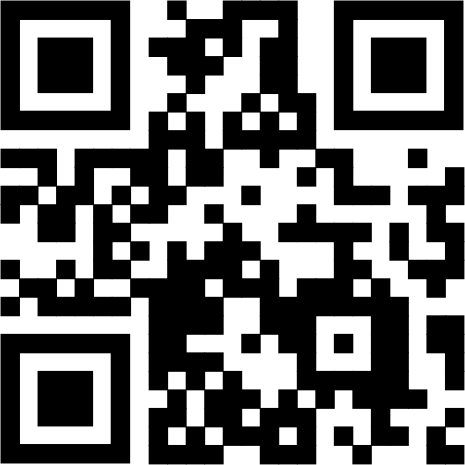(!) Since support from Microsoft will end on January 14th, 2020, Windows 7 will be excluded from the recommended environment from December 15th, 2019 on this site. Vì lý do Microsoft kết thúc hỗ trợ cho Windows 7 vào ngày 14/01/2020, Windows 7 sẽ là hệ điều hành không được khuyến khích sử dụng với trang web này từ ngày 15/12/2019.
Search by Category / Brand Tìm theo danh mục, nhãn hiệu
Search by Category Tìm theo danh mục
- [Thông báo] Cập nhật địa chỉ kho tập kết hàng hóa tại khu vực miền Nam của MISUMI Việt Nam. Xem chi tiết.
[Announcement] Update on warehouse address in the Southern region of MISUIMI Vietnam. See more. - [Cảnh Báo] Thủ Đoạn Lừa Đảo Từ Nhân Viên Giao Hàng – Yêu Cầu Trả Phí Ship. Xem chi tiết.
[Warning] Fraud Calling from Shipper - Asking to Pay Shipping Fee. See more.
Board-To-Board Connectors(V/W/X:Other)
Brand |
|
|---|---|
| CAD |
|
| Days to Ship |
|
1 itemsMặt hàng
- Sort By
-
You can add up to 6 items per a category to the compare list.

JAPANAVIATION
[Features]· A low-profile connector with a minimal footprint and height, offering a range of selectable parallel board intervals of 4–9 mm.
Connector Shape A/B/C D/E/F G/H/I J/K/L M/N/O P/Q/R S/T/U V/W/X Y and Z Number Applicable pin/contact Number Of Pins Application Allowable Current(A) Allowable Voltage(V) Wire connection method Connection direction Protection function (environmentally resistant) Representative Standard - - - - - - - - Other - - Male (plug) / Female (socket) 20 ~ 160 Board-to-Board - - Solder Straight / Angle NA - From: 92,273 VND Days to Ship: Số ngày giao hàng: 4 Day(s) or more  4 Day(s) or more
4 Day(s) or more
| BrandNhãn hiệu |
|---|
| Product SeriesDòng sản phẩm |
| From |
| Days to ShipSố ngày giao hàng |
| Connector Shape |
| A/B/C |
| D/E/F |
| G/H/I |
| J/K/L |
| M/N/O |
| P/Q/R |
| S/T/U |
| V/W/X |
| Y and Z |
| Number |
| Applicable pin/contact |
| Number Of Pins |
| Application |
| Allowable Current(A) |
| Allowable Voltage(V) |
| Wire connection method |
| Connection direction |
| Protection function (environmentally resistant) |
| Representative Standard |
You can add up to 6 items per a category to the compare list. | |
| BrandNhãn hiệu | JAPANAVIATION |
| Product SeriesDòng sản phẩm | |
| From | 92,273 VND |
| Days to ShipSố ngày giao hàng | 4 Day(s) or more |
| Connector Shape | - |
| A/B/C | - |
| D/E/F | - |
| G/H/I | - |
| J/K/L | - |
| M/N/O | - |
| P/Q/R | - |
| S/T/U | - |
| V/W/X | Other |
| Y and Z | - |
| Number | - |
| Applicable pin/contact | Male (plug) / Female (socket) |
| Number Of Pins | 20 ~ 160 |
| Application | Board-to-Board |
| Allowable Current(A) | - |
| Allowable Voltage(V) | - |
| Wire connection method | Solder |
| Connection direction | Straight / Angle |
| Protection function (environmentally resistant) | NA |
| Representative Standard | - |
Loading...Tải…
ConfigureTạo
Specification/DimensionsĐặc điểm kỹ thuật / Kích thướcĐặc điểm kỹ thuật / Kích thước
-
Connector Shape
- Square shape
-
A/B/C
- Other
-
D/E/F
- DIN/miniDIN
- Other
-
G/H/I
- Other
-
J/K/L
- Other
-
M/N/O
- Other
-
P/Q/R
- Other
-
S/T/U
- USB
- Other
-
V/W/X
- XH
- Other
-
Y and Z
- Other
-
Number
- Other
-
Applicable pin/contact
- Male (plug)
- Female (socket)
- Other
-
Number Of Pins
-
Application
-
Allowable Current(A)
-
Allowable Voltage(V)
-
Wire connection method
- Solder
- Crimp
- Pressure Welding
- Other
-
Connection direction
- Straight
- Angle
-
Protection function (environmentally resistant)
-
Representative Standard
Related Categories to Board-To-Board ConnectorsDanh mục liên quan đến Board-To-Board Connectors
FAQ Board Connectors
- Question: What factors should be considered when selecting a board-to-board connector?
- Answer: When selecting a board-to-board connector, consider:
1. Pitch: Ensure the connector's pitch matches the spacing between corresponding points on the boards.
2. Number of Contacts or Pins: Select a connector with the appropriate number of contacts for the application.
3. Voltage and Current Ratings: Consider the connector's capacity to handle the electrical requirements of the system, for example High current board-to-board connectors
4. Size : physical dimensions like height and orientation, for example, low profile or right angle PCB board connectors, should match your design to maintain a compact and efficient assembly.
5. Environmental Conditions: Consider factors like temperature, humidity, and exposure to chemicals to ensure the connector can withstand the intended operating environment. - Question: How do you ensure a secure connection with board-to-board connectors?
- Answer: To ensure a secure connection, consider
1. Robust Locking Mechanisms: Select connectors with sturdy locking features to ensure a secure and stable connection.
2. Adequate Contact Pressure: Choose connectors that provide sufficient contact pressure, preventing unintentional disconnections and maintaining a reliable electrical connection.
3. Reliable Solder Profile: For surface mount board interconnects, prioritize connectors with a dependable solder profile to establish a strong bond with the PCB.
4. Consider Environmental Factors: Evaluate the application's environmental conditions and, if exposed to moisture or other elements, opt for waterproof board-to-board connectors to enhance durability and prevent damage. - Question: What are the differences between mezzanine, coplanar, and backplane board-to-board connectors?
- Answer: 1. Mezzanine Connectors:
• Application: Join parallel PCBs in compact spaces.
• Characteristic: Small stacking height.
• Usage: Common in applications where space efficiency is crucial.
2. Coplanar Connectors:
• Application: Facilitate edge-to-edge connections on the same plane.
• Characteristic: Allow for flexibility in board orientation.
• Usage: Often used in modular designs.
3. Backplane Connectors:
• Application: Connect multiple PCBs within a chassis.
• Characteristic: Provide a higher number of connections.
• Usage: Ideal for scalable and complex systems, especially those requiring high-speed electronic board connections. - Question: Can you explain the role of pitch and stacking heights in board-to-board connectors?
- Answer: Pitch in board-to-board connectors denotes the distance between contact points, influencing density. A smaller pitch allows more contacts in a given space, crucial for compact designs. Stacking height represents the vertical space occupied when connectors are mated. It affects the overall system profile and is pivotal for applications with tight space constraints. Engineers optimize pitch for connectivity and stacking height for space efficiency, ensuring an ideal balance for electronic designs where minimizing size is essential.
- Question: What are the latest trends in miniaturization for board-to-board connectors?
- Answer: The latest trends in miniaturization for board-to-board connectors involve reduced pitch sizes, such as 0.4mm or even smaller, enabling higher contact density in limited spaces. Additionally, advancements in materials and manufacturing techniques contribute to smaller connector footprints. Robust and compact designs, like micro connectors and low-profile options, cater to applications with stringent size constraints, such IoT devices.
- Question: How do board-to-board connectors cater to the high-speed data transfer requirements?
- Answer: Board-to-board connectors meet high-speed data transfer demands by employing impedance matching, shielding against electromagnetic interference, and supporting high data rates (Gbps/Tbps). Differential signaling reduces noise susceptibility, while minimized crosstalk enhances signal integrity. These connectors play a pivotal role in various electronic applications, ensuring efficient and stable data transmission across interconnected boards.







How can we improve?
How can we improve?
While we are not able to respond directly to comments submitted in this form, the information will be reviewed for future improvement.
Customer Privacy Policy
Thank you for your cooperation.
While we are not able to respond directly to comments submitted in this form, the information will be reviewed for future improvement.
Please use the inquiry form.
Customer Privacy Policy